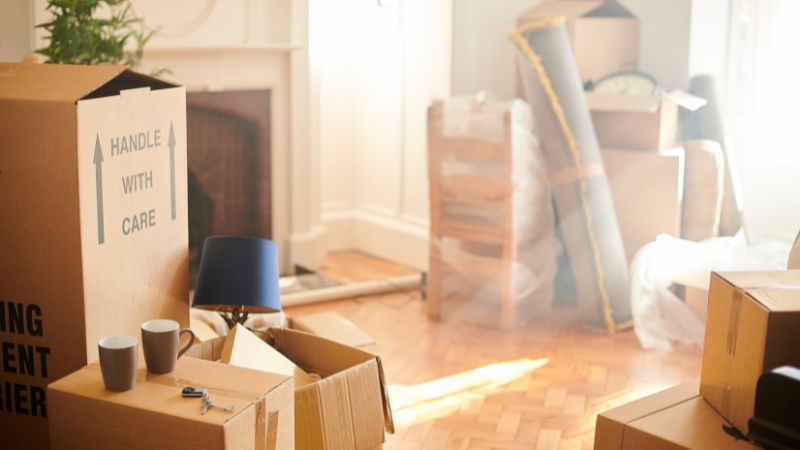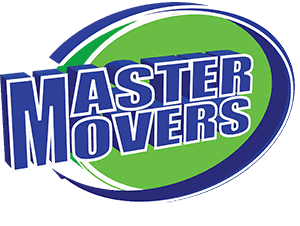Key Checklist for Residential Moving

A residential move refers to the process of relocating your household belongings from one living space to another. This type of move contrasts with commercial moves, which involve the transfer of business equipment and office supplies. Residential moves require careful handling of personal items varying from clothes to furniture, ensuring everything reaches the new home safely.
Why a Move Checklist is Crucial
Creating a detailed move checklist plays a pivotal role in managing your relocation efficiently. The benefits include:
- Organization: Ensures every small detail is checked off, preventing last-minute rushes and overlooked tasks.
- Budget Control: Helps track moving expenses to avoid overspending.
- Stress Reduction: Reduces the anxiety that often accompanies moving by providing a clear plan of action for each phase.
Initial Planning
Planning is the first and most crucial step in preparing for your move. Starting early will help you manage tasks systematically without the pressure of tight deadlines. Here’s how to kickstart your moving plan:
- Timeline: Establish a timeline that starts at least eight weeks before your moving day. This schedule should include all significant tasks and smaller details, with deadlines to keep you on track.
- Moving Budget: Outline all anticipated expenses including packing materials, moving company fees, and emergency cash for unexpected costs. This will help you control your finances and avoid overspending.
Selecting the Right Moving Service
Choosing the right residential moving company is essential to ensuring your belongings are transported safely and efficiently. Here are some tips to help you make the best choice:
- Types of Services: Understand different moving services such as full-service moves, self-service moves, and DIY options. Full-service moves, where the moving company handles everything from packing to unpacking, can be perfect for those seeking convenience.
- Research: Look into local moving companies, read reviews, and ask for recommendations. Obtain quotes from multiple movers to compare prices.
- Verify Credentials: Ensure the mover is licensed and insured. It’s essential for protection against damage or loss.
Two Months Before Moving
Begin your preparations by tackling tasks that can be completed well ahead of your moving day:
- Home Inventory: Go through every room and list all items. Decide what to keep, sell, donate, or discard. This decluttering step is crucial for a smoother move.
- Gather Records: Collect all necessary personal records including medical, dental, school, and legal documents. Consider making electronic copies.
- Change of Address Notifications: Start notifying institutions about your move. Include banks, subscriptions, and government agencies.
One Month Before Moving
With the move getting closer, it’s time to get more hands-on:
- Packing: Start packing non-essential items such as out-of-season clothes, books, and decorative pieces. Use sturdy boxes and quality packing materials.
- Labeling: Clearly label each box with its contents and the intended room in the new house. This makes unpacking easier and more organized.
- Confirm Moving Details: Touch base with your moving service (Master Movers) to confirm the date and logistics. Discuss any special requirements.
Two Weeks Before Moving
Now, focus on the logistics and finer details:
- Confirm Utilities: Ensure services like electricity, water, and internet will be set up at your new home before you arrive.
- Start Cleaning: Begin cleaning tasks around your current home, especially in areas cleared by packing. Don’t forget to schedule any necessary repairs.
- Plan for Pets and Plants: Arrange how you will transport pets and plants. Moving can be stressful for them, so consider their needs carefully.
One Week Before Moving
This is the final stretch where you finalize your preparations:
- Essentials Box: Pack a box of essentials that you’ll need during the first few days after the move. Include items like toiletries, medications, a few dishes, and clothes.
- Appliance Preparation: Ensure that all appliances are ready to be moved. Defrost the refrigerator at least 48 hours before the move.
- Finalize Packing: All packing should be completed, except for daily necessities.
Moving Day
D-day has arrived, and it’s crucial to stay organized:
- Early Start: Begin the day early to make sure everything goes as planned. Have breakfast and prepare a small bag with snacks and water.
- Final Walkthrough: Before the movers arrive, do a final walkthrough of your home to ensure nothing is left behind.
- Moving Day Kit: Keep your moving day kit with important documents, keys, and payment for the movers handy.
Unpacking and Organizing
After the hustle and bustle of moving day, you'll face the task of unpacking and organizing your new home. Here are some strategies to make this process manageable and efficient:
- Prioritize Rooms: Start with the rooms you use most, such as the kitchen and bathroom. Setting these up first will make your new place feel more like home and functional.
- Systematic Unpacking: Unpack one box at a time and place items directly where they belong. Refer back to the labeling on each box to streamline this process.
- Keep It Tidy: Break down boxes as you empty them and set aside a space to store packing materials that can be reused or recycled.
Addressing Post-Move Tasks
Once you’re somewhat settled, it’s time to address administrative tasks:
- Utilities Setup: Confirm all utilities are functioning correctly. If not, contact the service providers immediately.
- Change of Address Updates: If you haven’t already, update your address with all essential services and memberships.
- Explore the Neighborhood: Start exploring your new community to find essential services such as healthcare providers, local stores, and community centers.
Dealing with Delays and Damages
Even with meticulous planning, you might face unforeseen challenges like delays or damaged belongings:
- Plan for Delays: Always have a backup plan if the moving process gets delayed. This might include arranging for temporary accommodations.
- Handle Damages Calmly: In case of damages, document them with photos and contact the moving company immediately. With Master Movers, you can rest assured as our customer service is committed to resolving such issues promptly.
Adjusting to the New Environment
Settling into a new neighborhood involves more than just unpacking:
- Be Active in Your Community: Attend local events and introduce yourself to neighbors.
- Set New Routines: Establish new daily routines to give your days structure, which can help in adapting more quickly.
Your Partner in Smooth Residential Move
From creating an initial moving strategy to the final arrangement of your belongings in your new home, having a thorough residential move checklist is indispensable. By following the detailed steps outlined in this guide, you're setting yourself up for a successful and less stressful move. Remember, Master Movers “Movers with Manners” is more than just a moving company; we are your partners in transitioning to your new home.
Our Latest Blog





